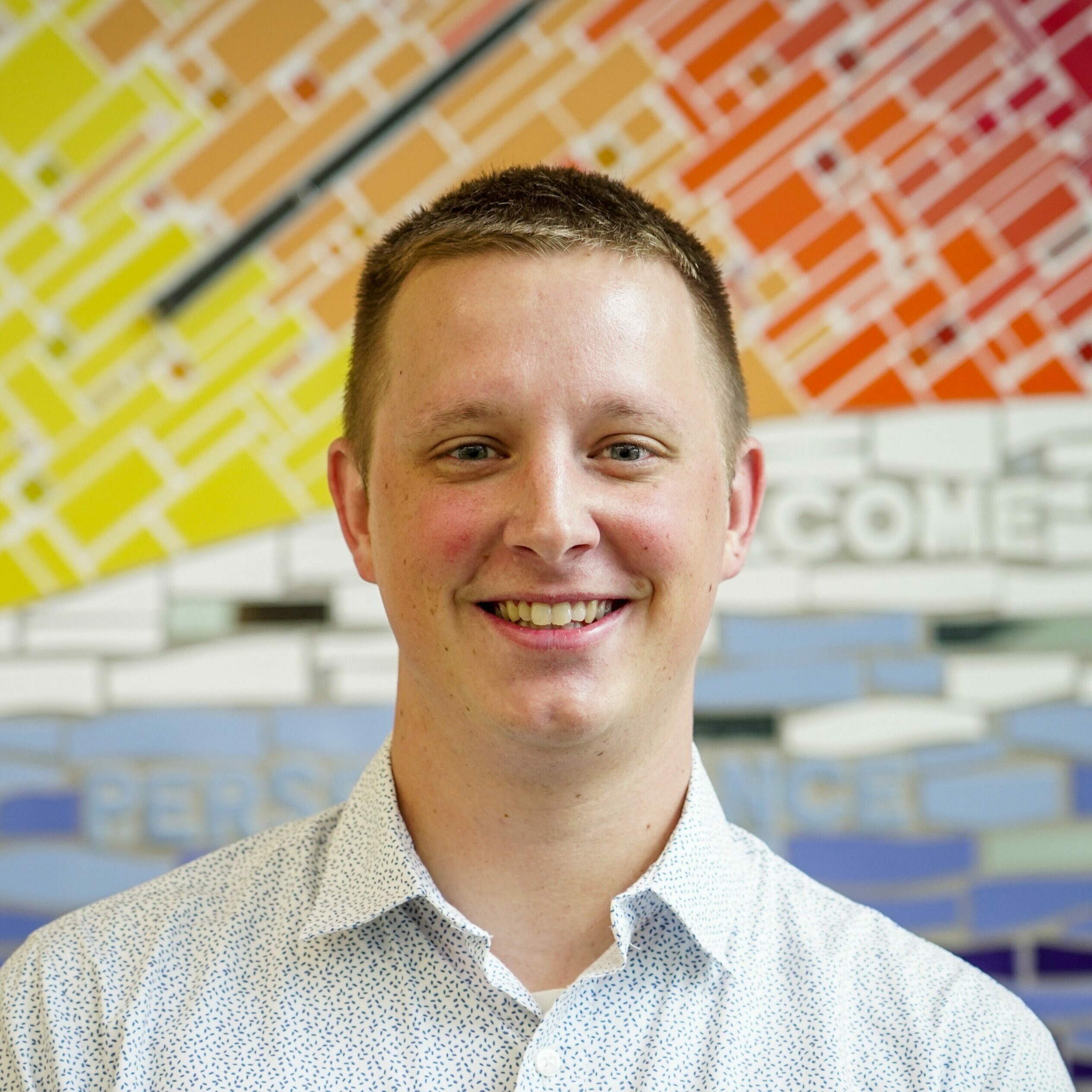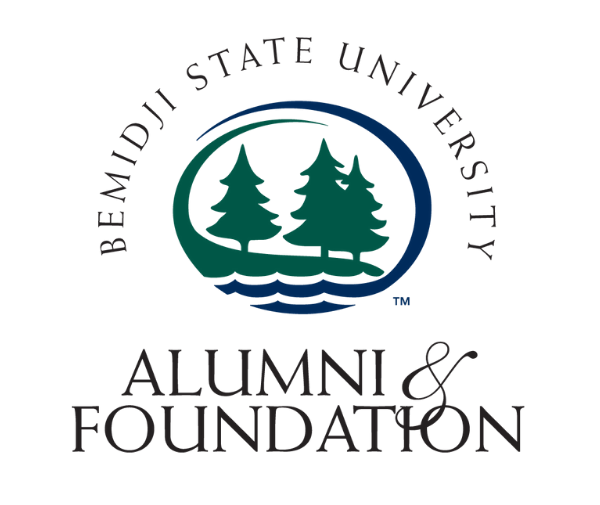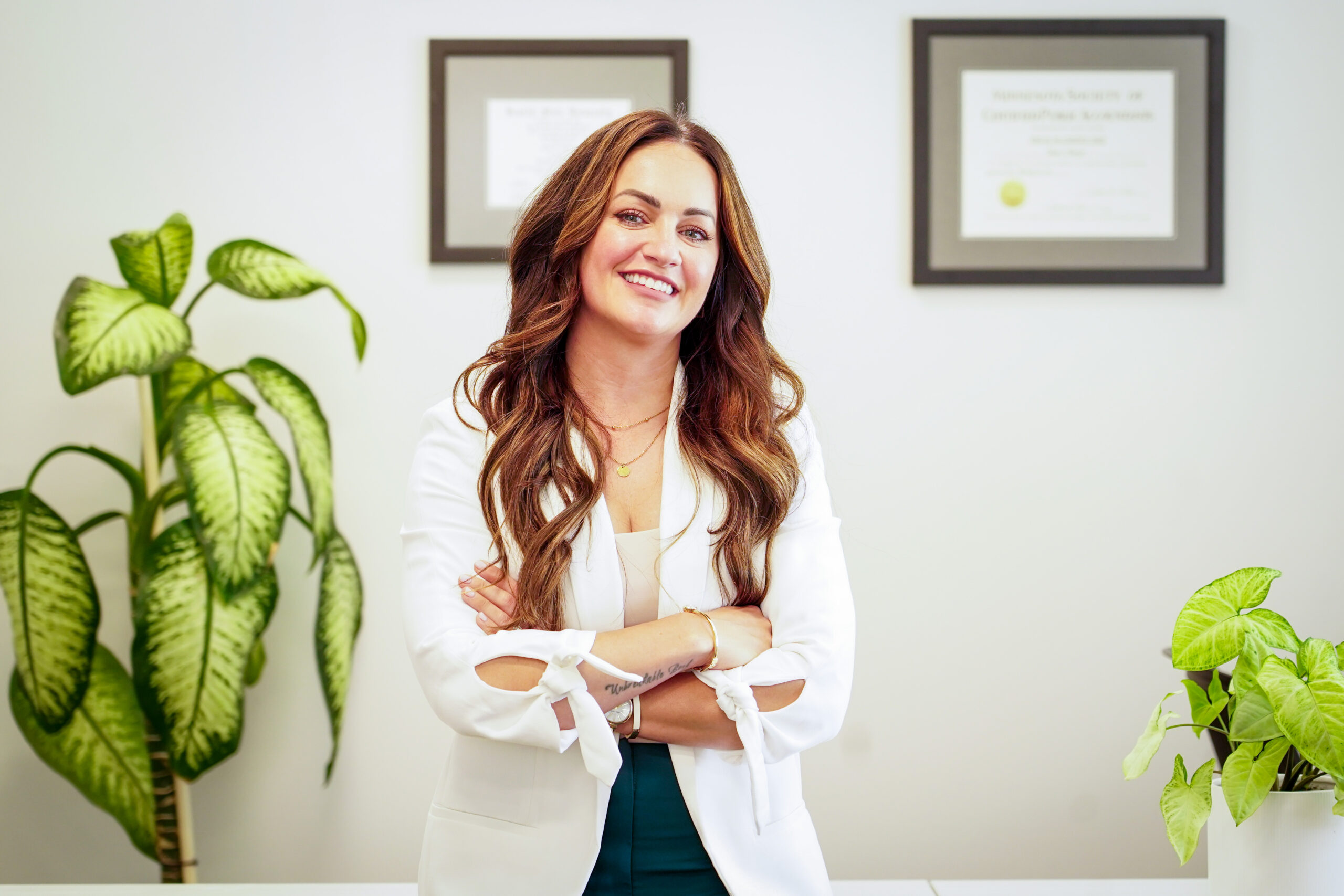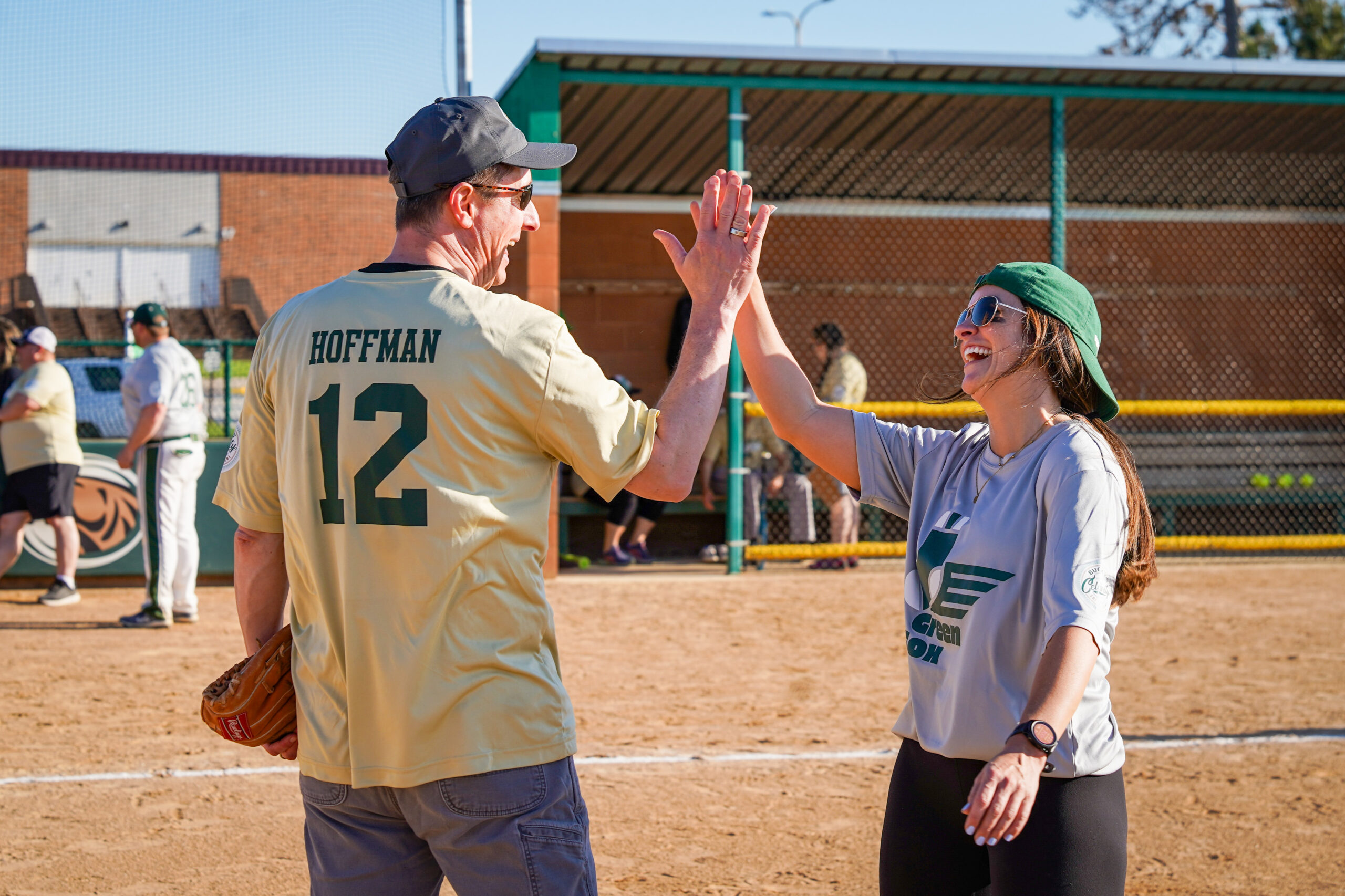
By Micah Friez
Published 8:00 a.m. on Aug. 20, 2024
Editor's note: This story first ran in the Spring/Summer 2024 issue of the BSU Magazine. To view the complete edition and see all the stories, click here.
Krisi Fenner enjoys the view.
From her office on the third floor of historic Deputy Hall, Bemidji State University's vice president for finance and administration overlooks a panorama of Lake Bemidji's summertime waters and the south side of a bustling campus. She can watch students scurry between classes in the same fashion she did 14 years ago.
Yet she appreciates the view not only for the summit, but for what her ascension represents.
“I have the chance to do work that I’m passionate about at the same institution that gave me opportunities,” Fenner said. “I’m very proud of the work we are doing here at BSU for our community and for our students, specifically for our first-generation and low-income students. I’m just honored to be a part of that kind of work.”
Fenner, a 2010 BSU graduate, was born and raised in the First City on the Mississippi. The famous lake her office overlooks is the same one that served as a backdrop for her own education.
Yet her path to college was filled with hurdles as tall as Paul Bunyan.
“There were a lot of barriers to entry for me,” Fenner said. “I grew up in a low-income family. College was, for me, the chance to provide better opportunities for myself and my family.”
As the first in her family to pursue higher education, the Bemidji High School grad faced a scary and unfamiliar road. But by forging forward undeterred, Fenner reset the standard of what was possible. Now in an executive cabinet role at the institution that raised her up, she finds immense joy in helping the newest wave of Krisi Fenners who are on similar journeys today.
“I want to ensure that future generations of students have access to the same opportunities that I did,” she said. “That is my No. 1 focus and why I’m here at Bemidji State and not somewhere else.”
Great potential within challenging times
Each day looks a little different for Fenner. She oversees finance, information technologies, facilities and public safety at Bemidji State. Her job is to support the leaders in each of those departments and to find solutions to anything thrown her way.
“There’s always some kind of new challenge,” she said. “In higher ed, we’re in a very challenging time. But also, there are a lot of great opportunities at BSU and a lot of positive momentum, a lot of big wins. I’m really excited to be a part of those, even though there are also a lot of challenges.”
Since joining Bemidji State in March 2023, Bemidji State’s complex and challenging budget has been Fenner’s primary focus. It’s not a job for the faint of heart, and Fenner knows there is more to her work than balancing the bottom line.
“We know that representation is important and that women bring unique and powerful skill sets to positions of leadership,” she said. “It’s critical that we not only acknowledge this, but that we model it. If our students see women in positions of power that have historically been held by men, it shows them what is possible in their own career aspirations.”
Representation has been a key consideration in President John L. Hoffman’s work to build his executive cabinet, which provides advice and counsel related to their own areas of leadership. Of the 10 members of BSU’s current executive cabinet, six are women, and three are women of color.
“I am proud to serve on an executive leadership team alongside other powerful, driven and dedicated women,” Fenner said. “They model what is possible for the next generation of female leaders.”
Bemidji State has long been a leader in gender equality – its first female president came in 1980 and its women’s athletics department predates Title IX, just to name a few examples – but Fenner didn’t always see herself in this kind of position.
For many first-generation college students, future possibilities may be hidden behind more immediate barriers. To overcome those hurdles, Fenner found resources through BSU employees who were passionate about helping students.
Just like she is now.
“While I recognize that I have a lot of privileges, there were also a lot of challenges,” she said. “But to get here, I also had teams of people who supported me, whether that was family or this university or the programs that were available. There have been people who have helped me get to each step of my educational journey and then my career.
“Yes, I did the work, but there was also a lot of support. That’s what’s important to me, to continue to ensure that it’s available for future students.”
Committed to the community
Bemidji is so embedded in Fenner’s DNA that she claims to bleed green and white. She and her husband have committed to staying in Bemidji until their snowbirding days, when they’ll finally fly south for warmer pastures in retirement.
But for the time being, Fenner’s focus is on helping the community that raised her. She finds joy in the avenues she has to reinvest in her hometown.
“This is my home,” she said. “So seeing education thrive in my community is something that I’m extremely passionate about. My career has been committed to improving education in this community. I knew that I was the right choice for this job because no candidate would care more about the success of Bemidji State University, its students or our local community.”
Fenner is now more than a year into her role and is doing just what she promised. She has rolled up her sleeves and joined others on the frontlines.
And even in the trenches, she enjoys the view.
“If not for the opportunities I had – specifically at Bemidji State – I would not be sitting where I am today,” Fenner said. “It’s all about ensuring that future generations have access to higher education and post-high school education opportunities. That’s how we break cycles of generational poverty. That’s how this entire community can improve and thrive.”

KEEP READING:



